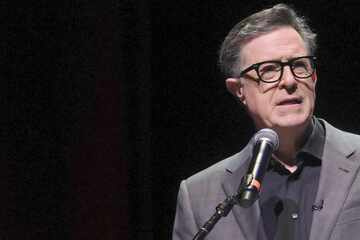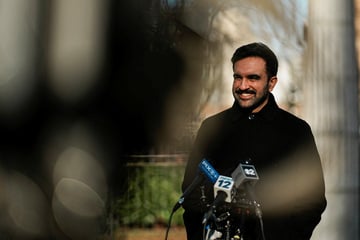Pittsburgh Penguins and historic Black church reach first-of-its-kind restorative justice agreement
Pittsburgh, Pennsylvania - The NHL's Pittsburgh Penguins joined Bethel AME Church leadership outside PPG Paints Arena on Friday to announce a historic restorative justice agreement amid the congregation's growing calls for reparations.
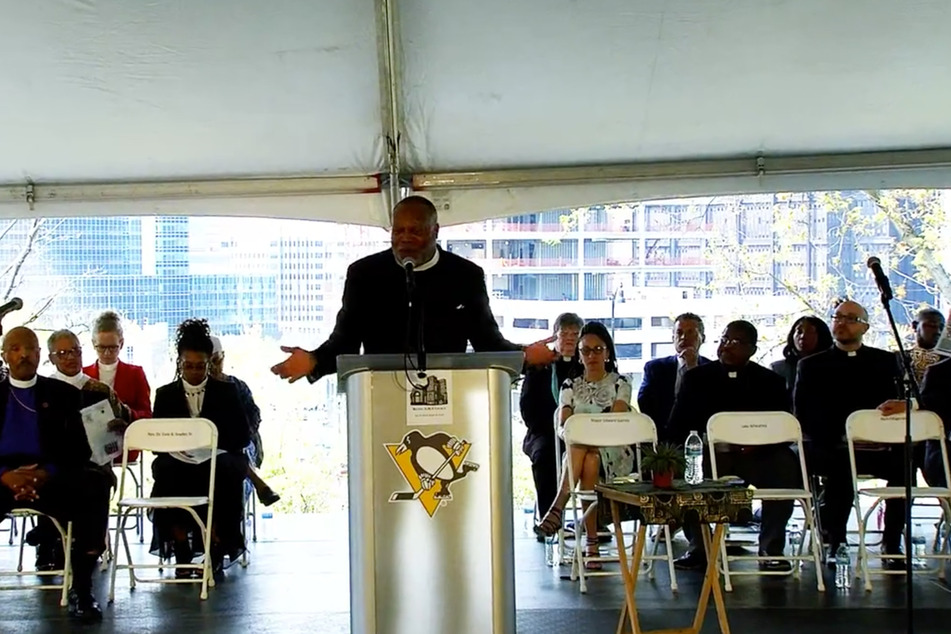
Pittsburgh Penguins Senior Vice President Craig Dunham stood alongside Bethel AME Church's pastor, Rev. Dr. Dale Snyder; elected officials; congregation members; and other faith leaders to announce a historic plan to return 1.5 acres of land in the Lower Hill District to the church.
The destruction of the Hill District during the "urban renewal" period of the 1950s marked Pittsburgh as the first US city to demolish a majority-Black neighborhood to make way for an interstate highway.
Bethel AME Church was one of the casualties of that process. Once the beating heart of Pittsburgh's Black community, the church's property was seized by eminent domain in 1957 and demolished.
"The Penguins understand and take very seriously this legacy of urban renewal. Our actions, along with our public partners, in advancing this redevelopment reflect this understanding and commitment to restorative development," Dunham said during the press conference on Friday.
Pittsburgh Mayor Ed Gainey also took part in the celebrations, saying, "Things can be taken, but they can also be replaced. What happened in the Lower Hill decades and decades ago wasn't right. It wasn't right at all."
"We're here today right now to talk about reclaiming something," he continued. "Let this be an example of what we as a people can do when we come together to make this a safe city, to make it a city that is welcoming and a city that is thriving."
The history of Bethel AME Church
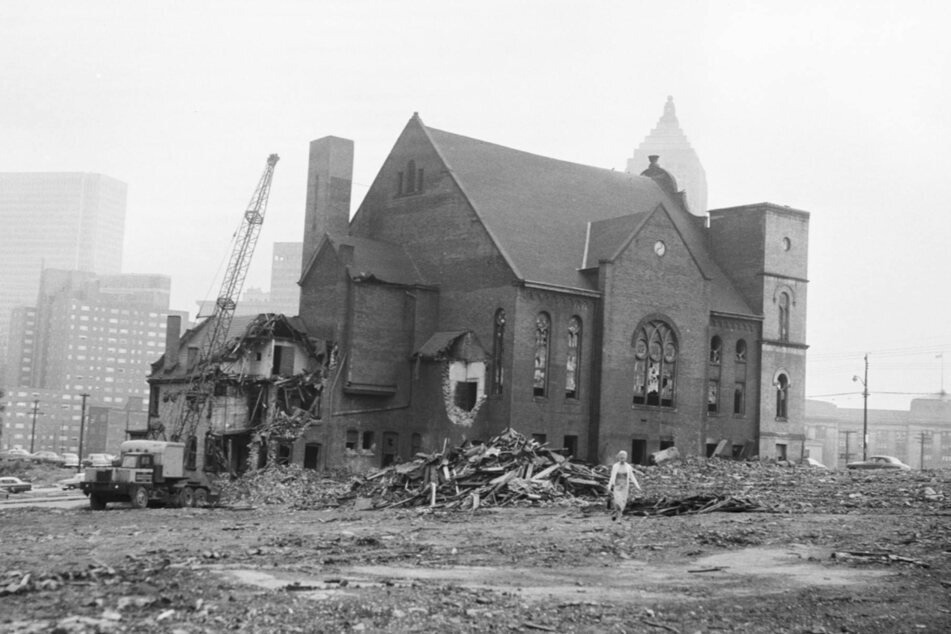
Bethel AME Church was founded in Downtown Pittsburgh in 1808. It is considered the city's oldest Black church and even served as a stop on the Underground Railroad.
"Bethel was that church that taught literacy when the public schools wouldn't allow us to learn how to read and to write," Rev. Dr. Snyder explained in his remarks. "Bethel was that place, when you came from Mississippi or Alabama or Georgia or Texas, that taught you the King's English [...] Bethel was the place that raised the standard for our children."
The sanctuary known as "Big Bethel," which could seat 1,900 people and took almost 55 years to build, was reduced to rubble when the church was seized and destroyed. A nearby white church of the same size was spared and still stands to this day.
Snyder described the targeting of Bethel AME as a legacy of enslavement, noting, "The white church in America owned 685,000 slaves for over 100 years, and their citadels of hope, their endowment funds, their colleges, their universities, their farmland was built on the back of our people."
After remaining undeveloped for some years, the land later became part of the Civic Arena site, former home of the Pittsburgh Penguins NHL team. It is now part of the PPG Paints Arena parking lot.
The Bethel AME congregation received just $240,000 in compensation after their church was razed to the ground. This was not enough money to build a new sanctuary of the same size.
Today, Bethel AME Church can only seat 900 people, and it has lost around two-thirds of its membership as a result. This translates to a deficit of potentially millions of dollars that could have been put toward housing, education, and training programs to benefit Pittsburgh's Black residents.
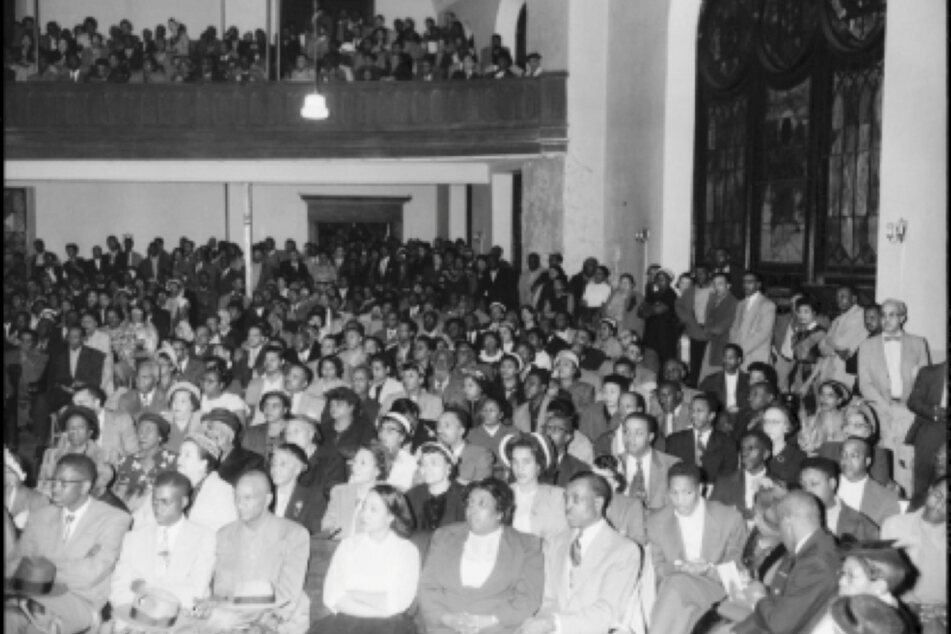
Bethel AME Church outlines its vision for the future
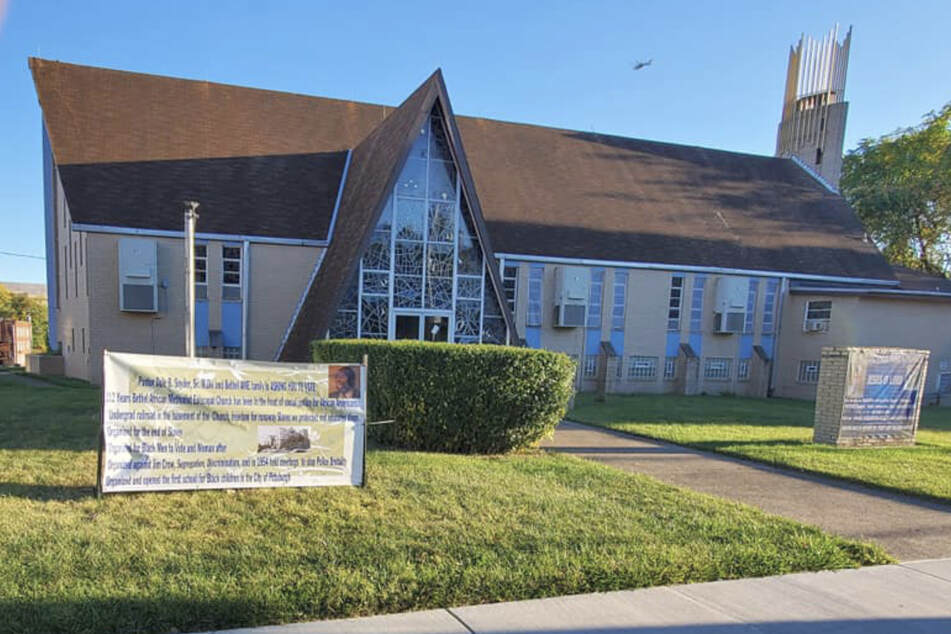
More than six decades after the church's destruction, the Penguins, city and county authorities, and the congregation have embarked on an unprecedented restorative justice initiative that will return land close to the original site of Big Bethel.
According to Snyder, the congregation already has big plans for the area which seek to build on the church's legacy of Black empowerment and self-determination.
"Our goal is to create a positive ecosystem for African Americans within a sustainable, mixed-use development for residential and commercial purposes that will include a daycare with state-of-the-art training for children, robotics, coding, and preparing our children for the future, creating an atmosphere for the encouragement of entrepreneurship," Snyder explained.
"Our desire is to create this incubator system for those who are quote 'left out, locked out, and closed out,' to create a way for young mothers who are struggling to raise their children," he added.
While a monumental move, there is still a lot of work needed to address Pittsburgh's history of racial discrimination and deprivation, with faith leaders expressing the need for a continued commitment to justice.
"The way forward for America is love, forgiveness, and restoration," Snyder insisted, grateful that the first step toward reconciliation had been taken with the historic land use agreement.
Cover photo: Courtesy of Rev. Dr. Dale Snyder
